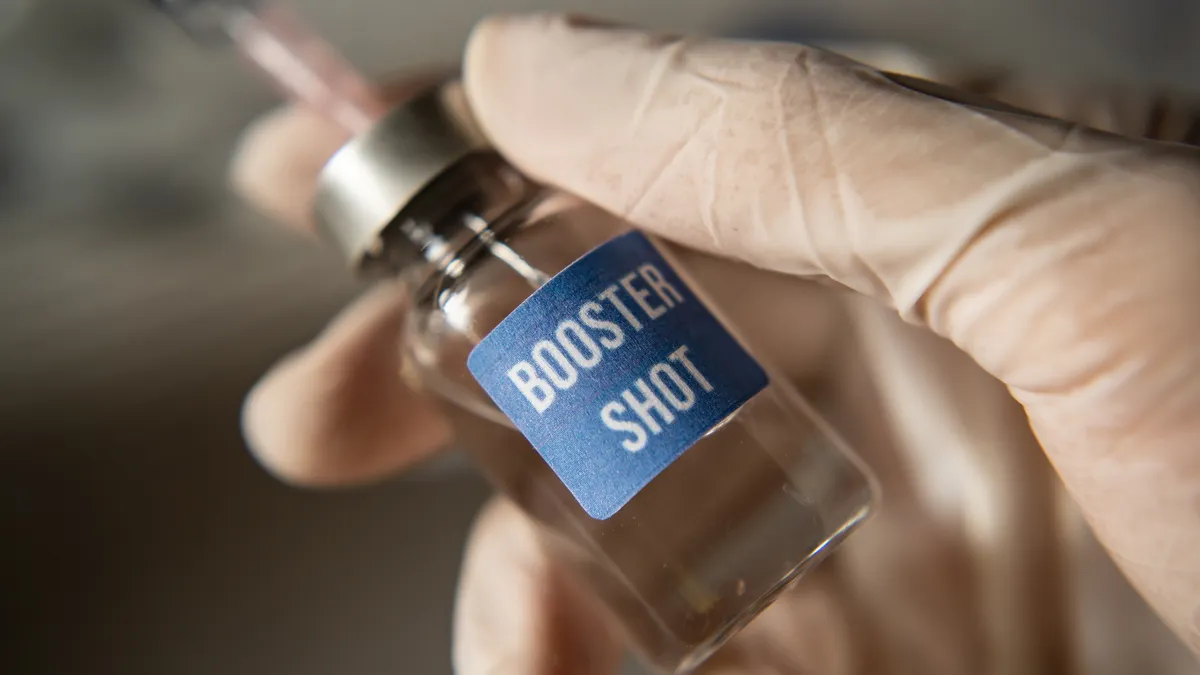While the U.S. moves into the next phase of COVID-19 vaccinations — which may include a transition to regular boosters, according to a recently proposed strategy from the FDA — many around the world are still waiting for their first shot.

Just 26.4% of people in low-income countries have received at least one COVID-19 vaccine dose, and according to research published in the journal Cureas, affordability, accessibility, and ease of storage remain prime barriers.
Now buoyed by positive phase 3 data published in December, Vaxxinity is aiming to help close this gap with its “next-generation” booster candidate, UB-612.
“Our vaccine is easy to use; it can be stored at typical refrigerator temperature,” said Dr. Ulo Palm, Vaxxinity’s chief medical officer. “This, in our view, makes it a really promising candidate especially for the developing world.”
With its eyes on the global market, Vaxxinity has initiated a rolling submission of its booster candidate in the U.K. and Australia, which it’s aiming to complete in the first half of this year. For now, Vaxxinity is not seeking an FDA approval.
The company tested UB-612 — which it said also has a favorable cost structure — head-to-head against already authorized vaccines from three makers: Pfizer-BioNTech, AstraZeneca and Sinopharm. For each, it was shown to be either better or the same at eliciting strong neutralizing antibodies against SARS-CoV-2. Phase 1 and 2 data also showed no vaccine-related serious adverse events from the shot.
—Data compiled by Our World in Data via The New York Times.
The topline phase 3 data supported findings from phases 1 and 2 that UB-612 elicits neutralizing antibodies against a broad array of variants.
That earlier data showed “that a booster dose of UB-612 vaccine candidate delivered seven to nine months after primary vaccination increased neutralizing antibody levels … against ancestral SARS-CoV-2 and the omicron BA.1 and BA.2 variants,” according to research published in the Journal of Infectious Diseases.
Now with the new data, Palm said that UB-612 “continues to be effective against different variants. We are not seeing that one variant or the other would easily evade the protection our vaccine provides.”
In addition, the data suggests that immunity may last longer with UB-612. The company reports that the antibodies that UB-612-generates have a half-life of six months, which is longer than the published half-lives of antibodies generated by other kinds of vaccines.
Palm and Vaxxinity call UB-612 a “next-generation” vaccine because it uses a multitope subunit protein/peptide-based platform that aims at both B and T cell arms of the immune system directed against multiple structural viral antigens. That’s different from other vaccines that use the entire spike protein.
“We took a very, very targeted approach and combination approach,” Palm said. “What our platform allows us to do here is to turn the body into its own antibody factory.”
If approved, Vaxxinity’s COVID-19 booster would be the first marketed drug from the company’s pipeline of synthetic, peptide-based immunotherapeutic vaccines it is developing against chronic diseases like Alzheimer’s, Parkinson’s, migraine and hypercholesterolemia.
Despite the emergence of other boosters, like ones from Novavax, Palm says he doesn’t believe Vaxxinity has any competitors because of this “next-generation” approach.
“They are first-generation, good vaccines. I, myself, am vaccinated with the Pfizer vaccine. It works. It has done its job,” he said.
Still, there’s room for improvement and more than enough space for UB-612.
“When you look at all the reinfections that are happening, breakthrough infections around the world, there’s definitely more than enough room for a next-generation, differently designed vaccine,” he said.












